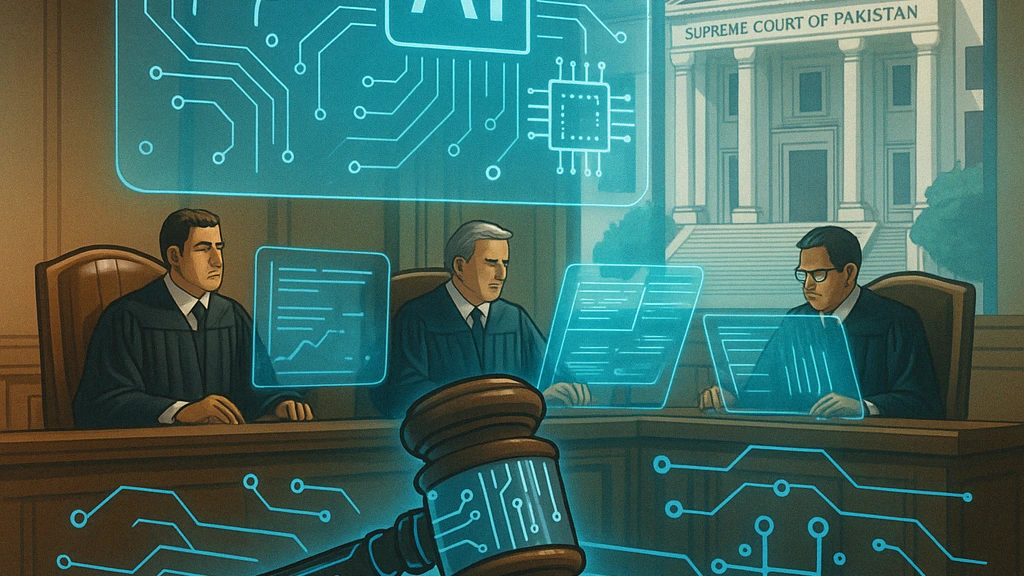The Supreme Court has underlined the need for artificial intelligence (AI) to cut delays in Pakistan’s courts, warning that prolonged hearings often turn into a denial of justice.
The judges stressed that quick justice is not just an administrative matter but a constitutional right that protects public trust in the judiciary.
In a written verdict on a 2011 auction case, Justices Mansoor Ali Shah and Ayesha Malik criticized the decade-long delay. The case remained in the Peshawar High Court for 10 years and then moved to the Supreme Court in 2022, where it still awaited a hearing.
The bench observed that long delays weaken the justice system, discourage investment, and most of all, hurt the poor and marginalized who cannot bear lengthy legal expenses.
READ MORE: Why Pakistan’s Supreme Court Is Shortened Its Vacation This Year
The court highlighted that over 2.2 million cases are pending across the country, including nearly 56,000 in the Supreme Court alone. It urged the adoption of modern tools and AI-driven case management systems to make proceedings faster, more transparent, and accountable.
The judgement also dismissed the 14-year-old auction petition because the petitioner or their representative failed to follow up. The court noted that such delays often make justice meaningless, saying: “Delay in justice is not merely denial of justice; in many cases, it amounts to the end of justice.”









